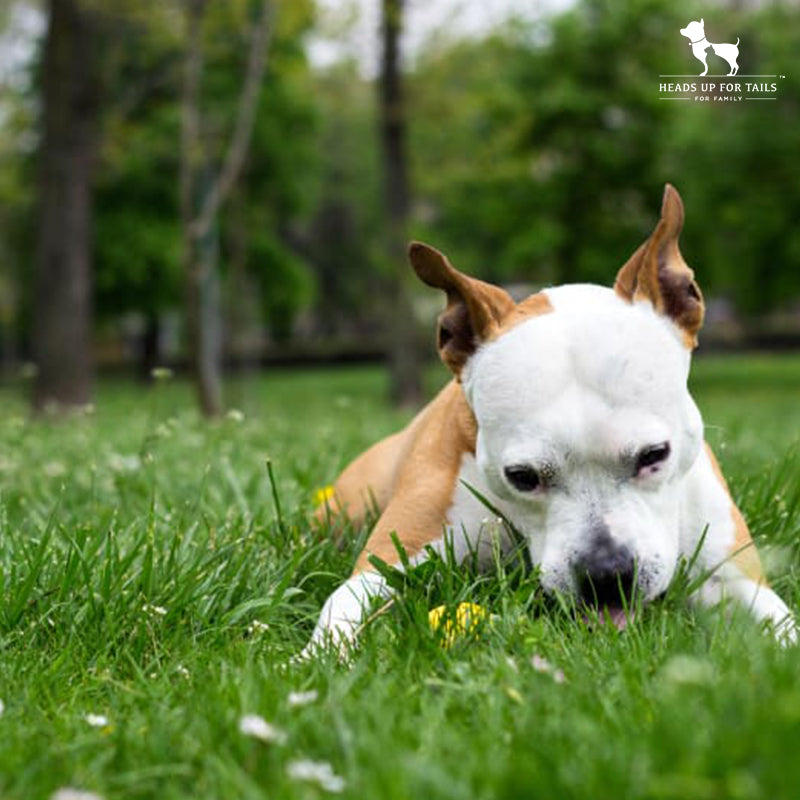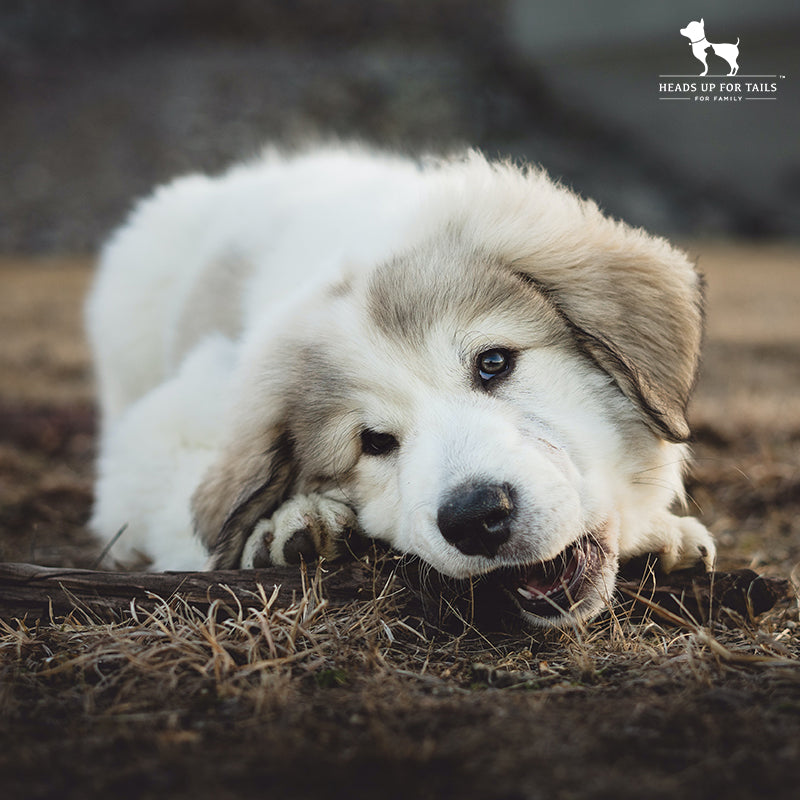
If you have a dog, you may have discovered that your furry one loves to chew grass whenever you let them out to play. You may have wondered, WHY?
Let us tell you that you are not the only one with a dog who eats grass. Veterinarians say that they have been asked why dogs eat grass more times than one can imagine. While eating ‘strange’ non-food items (e.g., grass) is termed PICA, a disorder often caused by a deficiency in dietary requirements, that is not the only reason.
Unlike the question, the answer is not so simple.

There might be a variety of reasons that your dog is eating grass. A common assumption is that eating grass can relieve digestive issues. However, studies show that around 10% of dogs display symptoms of illness before eating grass. The grass is a good source of fibre, and dogs need roughage in their diet for maintaining the body’s functioning. Lack of fibre affects their digestive ability, making it difficult to pass stool which might be the reason grass helps with your dog’s bodily processes.

Another reason might be that eating grass is a way to satisfy their psychological needs. Our pets’ worlds revolve around us - they focus on our activities, watch us leave for work, and wait for us to return. Most dogs get bored, need something to pass the time, and crave human interaction. To fulfil these needs, some dogs resort to actions, such as eating grass to communicate what’s going on internally to fulfil these needs. You can compare it to humans chewing their nails when anxious. Experts have noticed that the more the interaction between pets and humans decreases, the more they eat grass. If your dog is eating grass as a psychological mechanism, you can try introducing a new toy or an old T-shirt with your smell for comfort.

Instinct might be the answer to why dogs eat grass. Traditionally, dogs were in the wild and were accustomed to hunting their food. Dogs today do not need to hunt for food, but they likely have not lost their scavenger instinct. Some dogs eat grass as an instinctual behaviour, and the genetic need to be scavengers. In this case, occasionally eating grass is not a problematic behaviour at all. Periodic grazing sessions can help consistently prevent parasite infections, and behaviour modifications can interfere with their instincts doing more harm than good.

While occasional grass eating may be harmless, there are important factors we need to consider. Most herbicides and pesticides sprayed on the grass are toxic for dogs. Moreover, intestinal parasites like hookworms and roundworms from the faecal residue of other dogs might have contaminated the grass. Thus, stopping your dog from eating grass definitely has merit.
If your dog responds to treats, teaching them to stop eating grass in exchange for treats might be a good option. Keep your dog’s favourite treats with you when you take them out for walks. If you observe that your dog is leaning down to nibble on the grass, distract them, offer verbal cues, and treat them when they compile. If eating grass is a way of coping psychologically, you can try to be more affectionate towards them, use positive verbal reinforcement, and pet them as a reward. If your pet responds to verbal cues, distracting them and re-directing their attention becomes easier.

If your dog starts eating grass more frequently, you should be aware that they do so as a form of self-treatment against potential underlying illnesses. Keep an eye for signs of vomiting, diarrhoea, weight loss, reluctance to food, blood in stool, lip licking, or lethargy. If you have houseplants, monitor your pet, as certain species can cause toxicity when ingested.
If you notice any of these symptoms, think that your dog has chewed on a toxic houseplant, ingested too much grass, or small amounts of chemicals, consult your vet as soon as possible. Administering blood tests or physical exams can help determine the underlying conditions. If they do not display any symptoms, but you feel they have ingested too much grass, keep them hydrated, and have them fast for eight to twelve hours before introducing any food slowly. If your dog starts showing any symptoms, check in with a professional.